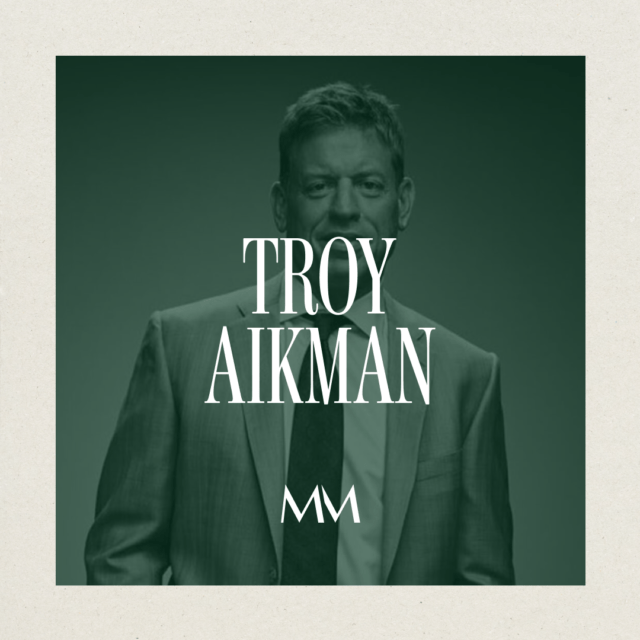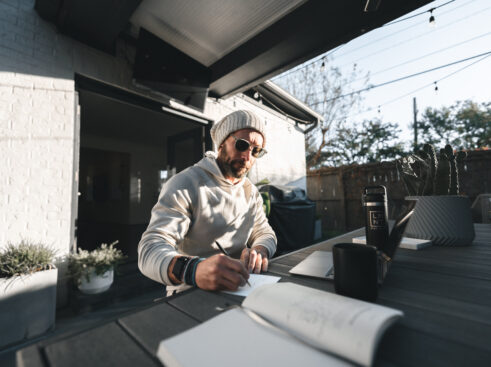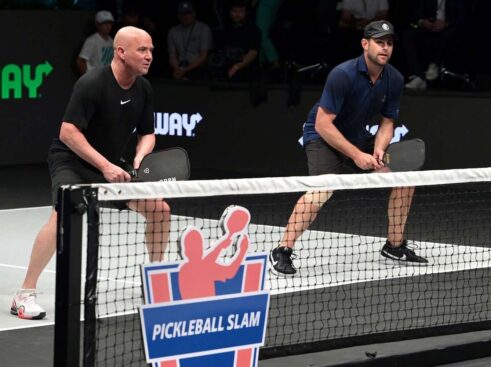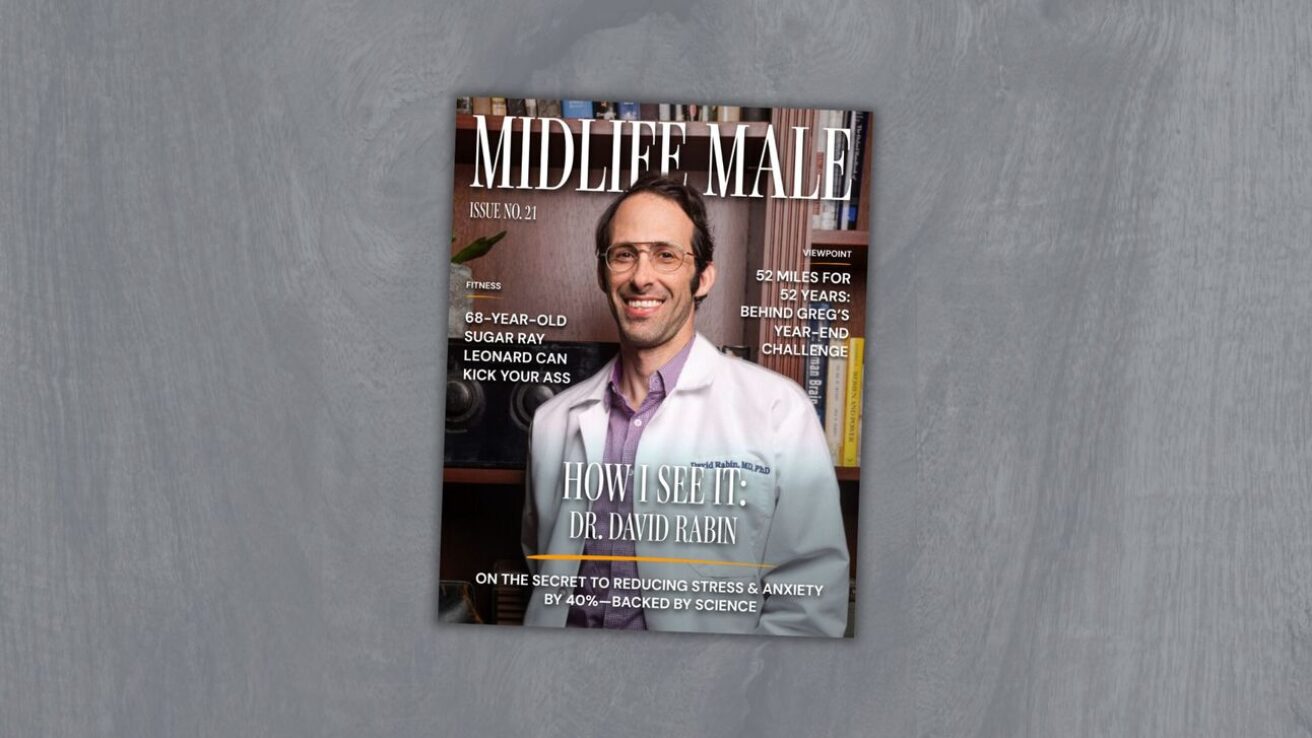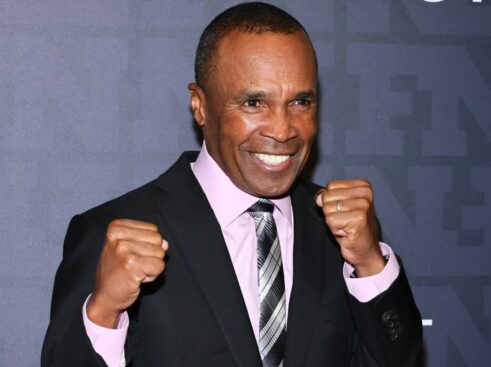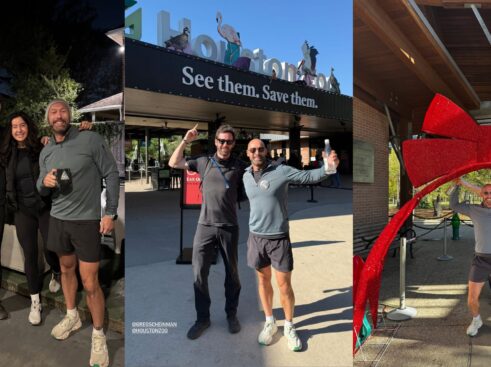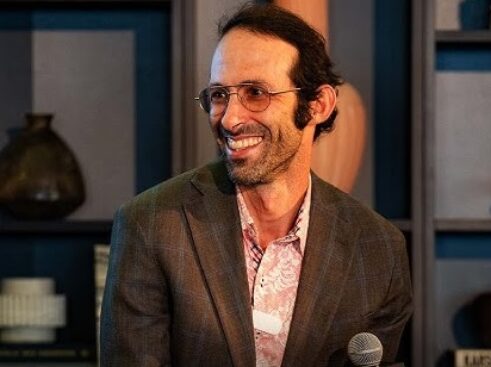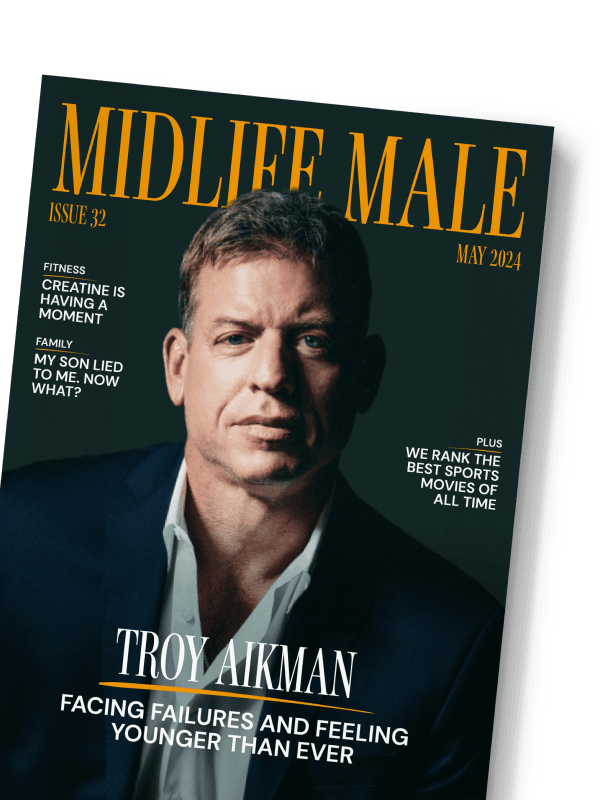
Morning, Greg here! Welcome to Issue No. 21 of Midlife Male, the lifestyle magazine for midlife men, by midlife men. I wanted to personally welcome all our new readers, and if this newsletter was forwarded to you, subscribe below.

This December, we’re proud to be partnering with mindbodygreen. MBG is one of our Midlife Male Approved brands and my family and I use their products daily. I’m very picky about what I put in and on my body, and I trust mindbodygreen, as well as the people behind the products. My personal go-to’s are the daily Multivitamin, Creatine (and I love their new travel packs), Omega 3’s, probiotics and their protein powder.
Learn more about MBG here, and use GREG10 to get 10% off your next order.

How I See It With Dr. David Rabin

Dr. David Rabin, shown here appearing on Robb Report.
The Eudemonia Summit is truly the gift that keeps on giving. A few months ago, I traveled to West Palm Beach for their inaugural event, not quite knowing what to expect. The lineup of speakers was remarkable, including Dr. David Rabin, founder of Apollo Neuro. I’d been testing the Apollo Neuro device for several months, so I reached out for an interview, and Dr. Rabin graciously accepted.
I’ll admit, I was skeptical at first. Apollo Neuro claims to help users unwind, focus, and sleep better through gentle vibrations delivered via a wearable device—on your wrist, ankle, or chest. It pairs with an app where you adjust the intensity based on your needs. As someone who deals with anxiety, I wondered if this was placebo or science. But over time, I realized something: wearing the Apollo and using the app when I need it most makes me feel better. It’s like having a silent companion to help self-regulate my emotional state.
Unlike other wearable tech that emphasizes tracking metrics—exercise, sleep scores, recovery—Apollo Neuro shifts the focus to less. It’s about intervention when you need it, helping you do less but with greater focus. That’s a refreshing philosophy in a space where too much tracking can add more stress.
There’s a balance we’re all trying to strike. On one side are the wellness basics: good sleep, nutrition, exercise. On the other is biohacking—cutting-edge devices and interventions. My curiosity lies in finding what really works versus what’s overkill. Apollo Neuro, in my experience, feels like it earns its spot.
Studies back this up. A double-blind study at the University of Pittsburgh showed significant improvements in heart rate variability (HRV), which measures how well your body handles stress. Over three months, users reported a 40% reduction in stress and anxiety. That hit home for me. Sleep data was equally compelling: users gained an extra 30 minutes of deep sleep per night on average—a huge win for anyone juggling work, family, and fitness.
Then there’s focus. A workplace study found users performed 25% better under stress. As a 52-year-old trying to manage life’s demands, that stat resonates. In my conversation with Dr. Rabin, we explored Apollo’s origins, the science behind its design, and how it helps people manage stress in real time. For those of us navigating the challenges of middle age, Apollo Neuro feels like a breakthrough worth exploring.
You’re going to learn a lot from this week’s How I See It.
In Health,
—Greg
How I See It w/ Dr. David Rabin
MLM: The idea behind Apollo Neuro seems rooted in helping people align their actions and intentions, correct? Whether it's saunas, ice baths, or specific routines—is that the impetus?
Dr. David Rabin: Exactly. A huge part of how it works is about aligning your actions and intentions to achieve your goals. Think about how often people say, "I want to unwind and go to bed," but then they pick up their phone, have a cup of coffee, or eat chocolate—all things that stimulate them. Phones emit blue light, which reduces melatonin production and keeps us awake. So, our intention is to fall asleep, but our actions are to stay awake. That misalignment is universal.
MLM: You're describing me to a T! I spent years knowing what to do but doing the opposite.
Dr. David Rabin: You’re not alone. Everyone does it. Even the best of us. Kids are prime examples—they imitate us. If they see us say, "I’m winding down for bed," but we pick up our phones or turn on the TV, they model that behavior. To them, that’s what "winding down" looks like.
MLM: Right, it’s about leading by example. I’m not telling my kids to work out every day—they should see my wife and me working out and hopefully want to do it themselves.
Dr. David Rabin: Exactly. When they see you working out, looking strong, and feeling great, it becomes their example. And that concept—aligning actions and intentions—applies universally. Take something like doing taxes. If you’re trying to focus but you’re in a loud room with construction sounds, uncomfortable furniture, and distractions, it’s going to take you two or three times longer. Apollo is like putting on the right music for what you’re trying to do. If your intention is to dance, you play dance music, not meditation music. Apollo is sound for your body—vibrational sound that nudges your energy states toward focus, relaxation, or whatever you need.
MLM: So how did Apollo start? Was it inspired by what you were seeing with patients?
Dr. David Rabin: Yes. I was treating patients with severe PTSD, particularly veterans and trauma survivors. I could build alignment with them in the office—they felt safe and restored after sessions. But the moment they left, they returned to stressful environments full of triggers and reminders of the past. Their environment didn’t align with their healing goals. I realized they needed something to take with them—a tool to maintain that sense of safety and calm even outside my office. That’s how Apollo was born. It’s a wearable that works through vibration to regulate the body, helping people feel safe, calm, and focused.
MLM: Is it kind of like those rubber bands people snap for distraction?
Dr. David Rabin: Not quite. The rubber band trick is more about distraction, often used for compulsive or self-harming behaviors. Apollo, on the other hand, actually changes your body’s rhythm—your heart rate, your breath—within minutes.
MLM: So Apollo keeps people in that safe space they feel during therapy?
Dr. David Rabin: Exactly. It’s like a safety tool for your body. It reminds your nervous system, "You’re safe." That’s critical for healing because humans naturally replay the past. The brain automates what we think about most, so if we constantly focus on fear or stress, we reinforce those states. Apollo helps shift us toward calm and safety.
MLM: How did you land on vibration and sound as the solution?
…

52 Miles for 52 Years: Why I’m Walking Toward Focus, Vision, and What Comes Next

My birthday’s on the 23rd, and I’ll be walking 52 miles to commemorate my 52nd year—so by the time you read this, I’ll (hopefully) be done, healthily and somewhat happily. My friend Sterling Hawkins, author of Hunting Discomfort, suggested the challenge, and always up for a little suffering, I said yes.
The end of the year is usually chaotic for me. Naturally, I decided to drop a long physical and mental challenge right in the middle of it (cue sarcasm). My youngest son Harper is wrapping up finals (less stressful now that he’s accepted to his top-choice college), and Auden, my oldest, is coming home during mile 28, and Kate said she’d join for a few miles. I’m also prepping for the year ahead, finishing strong, and taking the family to see the Colorado Buffalo’s in their Alamo Bowl appearance. Right after that, the boys and I head to Savannah for a father/son weekend.
Here’s the truth: life is always full of serious shit.
There’s no graduating to a point where the shit stops—just learning to handle it better. And this year, I’ve learned there’s just as much value in curation as there is in creation. I don’t need to reinvent the wheel every time I hit a crossroads. Someone out there has already built the tools we need; we just have to find them and use them. In fact, here are two invaluable tools that I’ve found incredibly helpful this past year:

Millions of stories are posted online every day and 99.9% are noise. We sifted through the nonsense to find experts and thought leaders who will share deep dives in one of our 6Fs every week: Fitness. Family. Finance. Food. Fashion. Fun. These are powerful essays by our team or guest writers designed to make you think, grow and maximize your midlife starting now.
FITNESS
68-Year-Old Sugar Ray Leonard Can Kick Your Ass & Why You Should Never Stop Training
By Jon Finkel
Six pack. Fast as hell. Works the speed bag. Hits the battle ropes. Works the mitts. This isn’t the description of the current middleweight boxing champion’s workout.
Nope.
This was 68-year-old retired Hall of Fame boxer Sugar Ray Leonard’s workout THIS YEAR.
Leonard, who famously won world titles in five different weight classes, was named Boxer of the Decade by Ring Magazine for the 1980s and was the first boxer to earn more than $100M in fight purses, has never stopped training, despite officially retiring from the sport in the 1997 with a 36-3-1 record.
We’re sharing this video for two impactful reasons:
One, it’s inspiring as hell. This man is almost 70 and he has the speed, reflexes, eye-hand-coordination and movement that still outpaces 99% of guys in their twenties.
And two…


Listen to the audio book of Midlife Male, read by author/founder Greg Scheinman, on Audible today!
For more midlife content in your feeds, follow our new Midlife Male channels on Instagram, YouTube, and Threads.
Midlife Male Approved
Here are a few of the brands we believe in.
-
Sisu Saunas. Incredible craftsmanship that brings barrel sauna technology to your home. Use MIDLIFEMALE for a discount at checkout.
-
Plunge. The perfect cold plunge pool for contrast therapy work, without having to deal with all those bags of ice. Use code MIDLIFEMALE for $150 off.
-
Bubs Naturals. Collagen peptides and MCT oil powders specifically designed to mix into your morning coffee. Use MIDLIFEMALE for 20% off.
